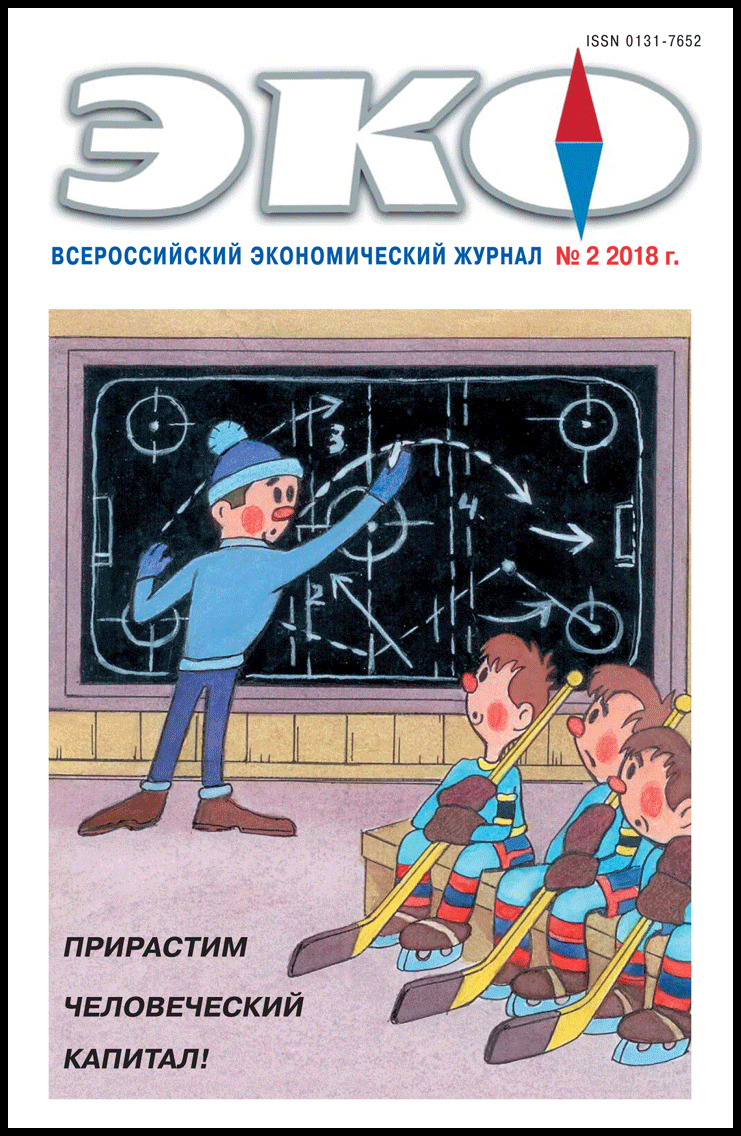COVER STORY: GROWING HUMAN CAPITAL
Published 2018-07-09
Keywords
- STAFFING,
- TEXTILE AND LIGHT INDUSTRY,
- STRATEGIC PLANNING,
- LABOR POTENTIAL,
- TRAINING
- STATE SUPPORT ...More
How to Cite
1.
Kolennikova О. Staffing of Textile and Light Industry: Problems and Search for Solution. ECO [Internet]. 2018 Jul. 9 [cited 2026 Jan. 19];48(2):48-61. Available from: https://ecotrends.ru/index.php/eco/article/view/1158
Abstract
The article analyzes the problems of staffing of the textile and light industry enterprises, which arose in the course of implementing the state policy in relation to the industry. The main problems that were launched during the ill-conceived transition to the market economy are high turnover of the staff; sustained shortage of workers of key professions; presence of a significant number of personnel without specialized vocational education, including in the management team; limited (up to complete absence) training of the industry specialists in universities and colleges; the fall of the function of training for worker's specialties on the shoulders of enterprises with their acute deficite of financial and other resources for these purposes. It has been established that the leading factors that allow enterprises to survive are the proper quality of managerial activity, support from the regional authorities and the use of cheap labor. However, these factors do not solve the problem of staff shortages. According to the survey conducted by ISESP RAS among the heads of enterprises with using the qualitative interview method (2016), it is not possible to fully resolve personnel issues, as the opportunities for using cheap workers are narrowing, and only comprehensive programs for the development of the entire industry can encourage incentives for long-term investments in the re-equipment of production and improvement the quality of labor potential. The policy of the state is estimated by respondents as nothing more than an interest in the development of the industry, supplemented by single measures of support.References
1.
Коленникова О.А., Токсанбаева М. С. Обеспечение приоритетных производств качественными трудовыми ресурсами: проблемы дефицита и набора кадров//Народонаселение. -2017. -№ 3. -С. 92-105.
2.
Яременко Ю. В. Экономические беседы. -М.: Центр исследований и статистики науки, 1999. -344 с.
3.
Промышленность Российской Федерации. 1992. -М.: Госкомстат России, 1992. -С. 9; 16; 122; 127.
4.
Васильев А. Н. Экономические проблемы развития легкой промышленности. -М.: Легпромбытиздат, 1988. -158 с.
5.
Текстильное производство: время перемен (круглый стол)//ЭКО. -1984. -№ 4. -С. 53-80.
6.
Трудовой потенциал: проблемы подготовки и использования кадров//Текстильная промышленность. -1990. -№ 6. -С. 25-26.
7.
Постановление ЦК КПСС, Совмина СССР от 26.03.1988 N412 О мерах по техническому перевооружению легкой промышленности в 1988-1995 годах, обеспечивающих ускоренное решение проблемы удовлетворения потребностей населения в товарах.
8.
Активизация внешнеэкономической деятельности в легкой промышленности стран -членов СЭВ (круглый стол)//Текстильная промышленность. -1990. -№ 5. -С. 3-18.
9.
Программа Правительства РФ Структурная перестройка и экономический рост в 1997-2000 годах. Утв. Постановлением Правительства от 31.03.97 № 360.
10.
Шапиро И. И. Состояние и перспективы развития текстильной и легкой промышленности России//Текстильная промышленность. -1995. -№ 11. -С. 9-15.
11. Пути развития текстильной и легкой промышленности//Текстильная промышленность. -2004. -№ 1-2. -С. 50.
12. Амосов А. И. Последствия сверхускорения эволюции экономики и общества в последние столетия: Закономерности социального и экономического развития. -М.: Издательство ЛКИ, 2015. -312 с.
13. Жуков Ю. В. Шаг сделан?//Швейная промышленность. -2005. -№ 1. -С. 2-5.
14. Кризисная экономика современной России: тенденции и перспективы/А. Абрамов, Е. Апевалова, Е. Астафьева ; науч. ред. Е. Т. Гайдар. -М.: Проспект, 2010. -С. 235.
15. Основные формы незаконного оборота продукции на потребительских рынках России и меры противодействия/В. В. Радаев, Е. С. Бердышева, Н. В. Конрой, З. В. Котельникова. Аналитика ЛЭСИ. Вып.17. -М.: Изд. дом ГУ ВШЭ, 2017. -416 с.

